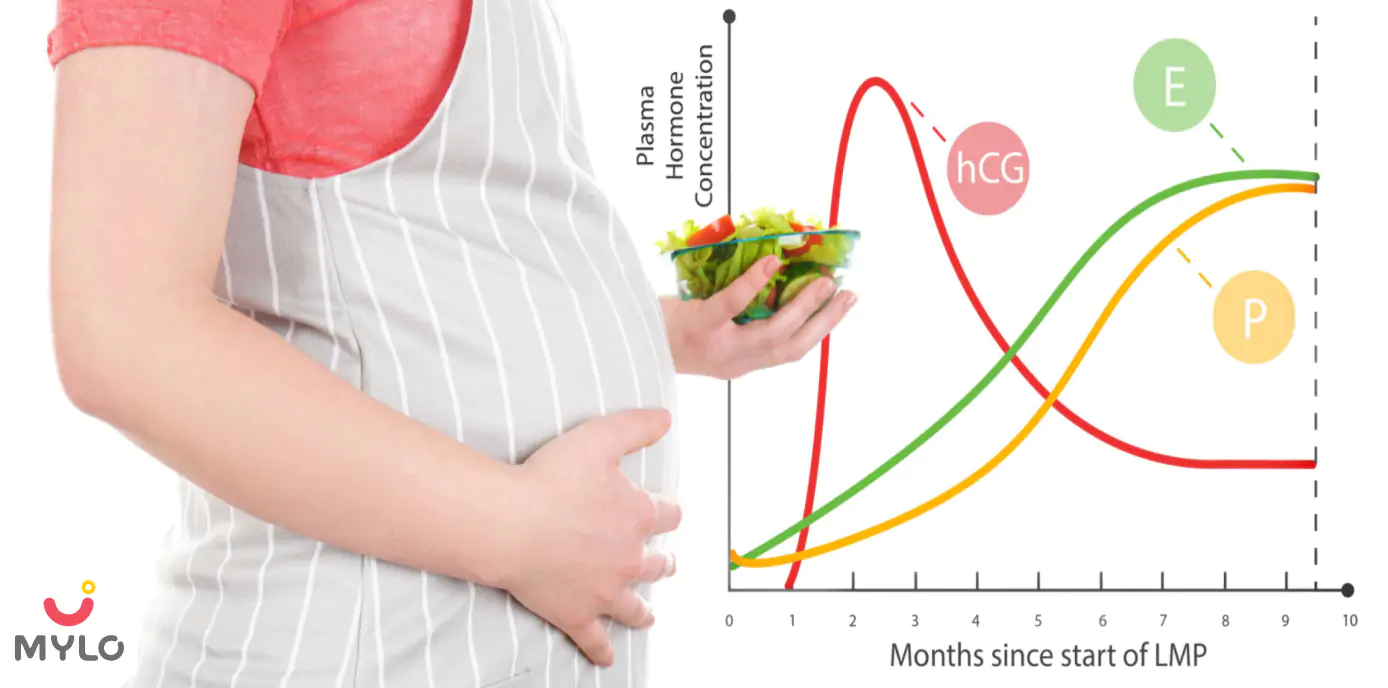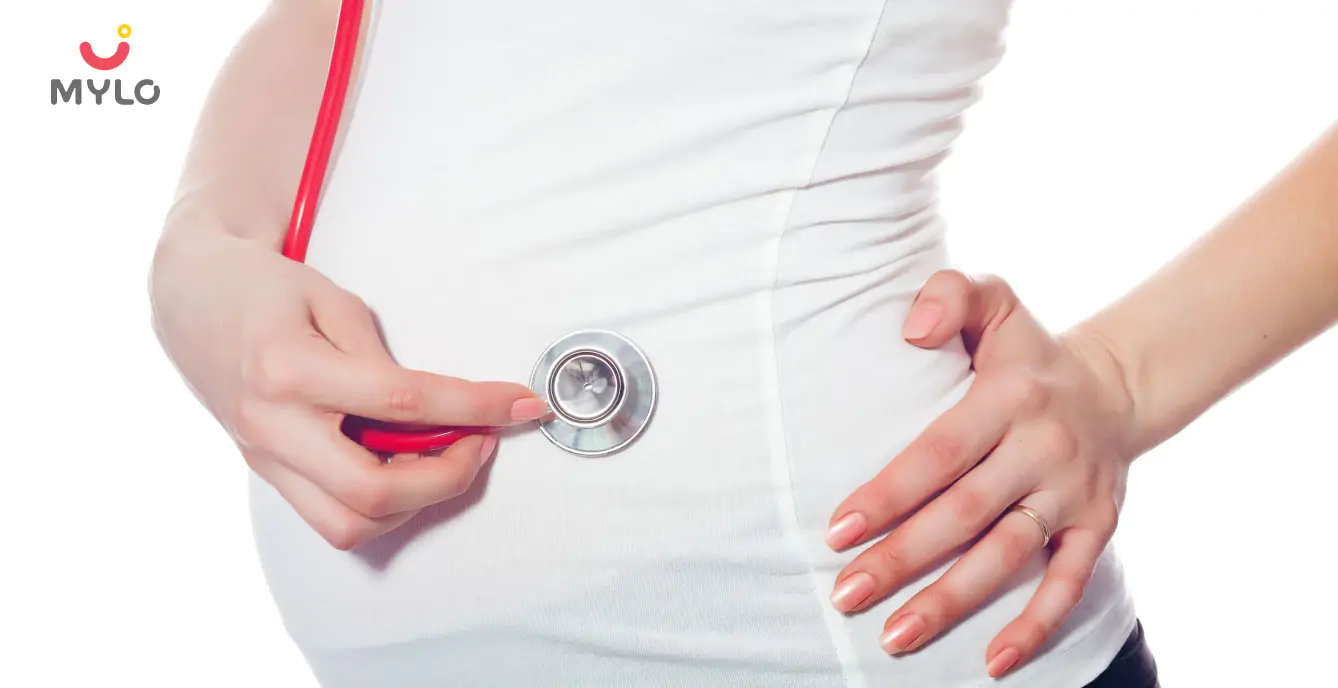Get MYLO APP
Install Mylo app Now and unlock new features
💰 Extra 20% OFF on 1st purchase
🥗 Get Diet Chart for your little one
📈 Track your baby’s growth
👩⚕️ Get daily tips

OR


Article Continues below advertisement
Home

Gas & Bloating

Postpartum Gas: Causes And Remedies
In this Article
- What is Postpartum Gas?
- What Causes Postpartum Gas?
- 1. Medications
- 2. Damage to the pelvic floor
- 3. Constipation
- 4. Lifestyle and diet
- 5. Episiotomy
- Postpartum Gas Symptoms
- Treatments for Postpartum Gas
- When should we see a doctor for postpartum gas?
- Final thoughts
- References

Gas & Bloating
Postpartum Gas: Causes And Remedies
Updated on 19 April 2024



Medically Reviewed by
Dr. Shruti Tanwar
C-section & gynae problems - MBBS| MS (OBS & Gynae)
View Profile

Welcoming a new life into the world is undeniably one of the most fulfilling experiences a woman can have. But, along with the joy and excitement comes a host of physical changes that can be uncomfortable and even embarrassing. One of these changes is postpartum gas, which is a common issue that many new moms face. While it may not be the most glamorous topic to discuss, it's important to understand how long does postpartum gas last, its causes and remedies to help new moms alleviate discomfort and feel more confident during this exciting but challenging time.
What is Postpartum Gas?

Many people are confused about what is postpartum gas as it can sound like a complicated medical term. To put it simply, postpartum refers to the period after childbirth. The flatulence or excessive build-up of gases that a woman experiences after childbirth is called postpartum gas. Sometimes, women experience both constipation, and flatulence simultaneously. According to medical experts, the question how long does postpartum gas last, may be affected by hormonal changes.
Article continues below advertisment
You may also like: Postpartum Complications: Everything You Need to Know
What Causes Postpartum Gas?
If you're thinking what causes postpartum gas, they must not panic as it is quite a common symptom that women face after delivering a baby. Some common causes of postpartum gas are explained below:
1. Medications
Some medications given during childbirth or after delivery can cause gas. Pethidine is one such medication that can cause gas as a side effect. However, anti-nausea medications are usually administered at the same time to alleviate this side effect. Other medications that may cause gas include opioid pain relievers, such as morphine and fentanyl.
2. Damage to the pelvic floor
Women have to stretch their pelvic muscles quite a lot during childbirth. This excessive stretching of pelvic muscles may sometimes result in a rupture. The injured muscles may make the women lose control over the passing gases. It may also disturb their bowel movements.
You may also like: How To Take Care Of Your Vagina After Delivery
Article continues below advertisment
3. Constipation
Women who struggle with infrequent bowel movements during pregnancy might have to experience bloating and constipation after childbirth. In some conditions, the stool becomes very hard making it hard to pass which ultimately results in gas formation.
4. Lifestyle and diet
Consuming processed food that contains whole grains, dairy products, and high sugar content can also lead to flatulence or postpartum gas. Lactose and fructose are two types of sugars that naturally occur in milk and fruits that can lead to excessive gas in the body.
5. Episiotomy
Sometimes, doctors perform a surgery called episiotomy during pregnancy that involves cutting the portion between the anus and vaginal opening to prevent them from tearing. The cuts heal slowly but they also weaken the muscles of the pelvic floor. It may result in some symptoms including constipation and postpartum gas.
Postpartum Gas Symptoms
After understanding what causes postpartum gas, it is also essential to look at its symptoms. Some of the common symptoms of postpartum gas include:
- Farting and flatulence
- Abdominal discomfort or pain
- Cramps in the abdomen
- Involuntary bowel movements
- Constipation
- Belching or burping
You may also like: When Will My Menstrual Cycle Resume After Pregnancy?
Article continues below advertisment
Treatments for Postpartum Gas
Postpartum gas can be treated and managed through several methods including:
- If postpartum gas is caused due to a pelvic floor injury or damage, then you must address the underlying cause. You can seek treatment for pelvic floor injury from your doctor or a physiotherapist.
- Eating a healthy diet rich in fiber can help to prevent constipation and reduce gas. Foods such as bran, fruit, green vegetables, and whole grains are recommended, and prunes can be particularly helpful.
- Avoiding foods that increase gas, such as beans, dairy products, and some fruits, can also be helpful.
- Over-the-counter stool softeners or laxatives can provide relief in the short term.
- Drinking plenty of fluids and warm liquids can also help move things along and prevent constipation.
- Pelvic floor exercises can be done to alleviate symptoms.
If there is severe abdominal pain or signs of infection, it is important to contact a doctor.
When should we see a doctor for postpartum gas?
It's important to understand how long does postpartum gas last in order to know when it's time to see a doctor. Postpartum gas can last up to a month after delivery, but it usually resolves itself within the first postpartum month. If your symptoms last more than a month or if the gas is accompanied by severe pain, bloating, vomiting, or constipation, it may be a sign of a more serious condition such as bowel obstruction or infection.
It is important to seek medical attention if you experience any of these symptoms. It is necessary to not hesitate in seeking medical intervention for reasons like gas and bloating because ignoring the symptoms could expose an underlying condition further. So, if you have concerns or questions about postpartum gas, it is always best to consult with your healthcare provider.
You may also like: Postnatal Ayurvedic Care for New Mothers
Article continues below advertisment
Final thoughts
In conclusion, postpartum gas is a common issue that many new mothers experience after giving birth. Simple lifestyle changes such as exercise, hydration, and a healthy diet can go a long way in preventing and reducing postpartum gas. But instead of wondering how long does postpartum gas last and experiencing its unpleasant symptoms, you should not delay consulting your doctor and seeking treatment.
References
1. Childbirth and delivery. (2016). International Foundation for Gastrointestinal Disorders
2. Poulsen, J. L., Brock, C., Olesen, A. E., Nilsson, M., & Drewes, A. M. (2015). Evolving paradigms in the treatment of opioid-induced bowel dysfunction. Therapeutic Advances in Gastroenterology





Medically Reviewed by
Dr. Shruti Tanwar
C-section & gynae problems - MBBS| MS (OBS & Gynae)
View Profile


Written by
Priyanka Verma
Priyanka is an experienced editor & content writer with great attention to detail. Mother to an 11-year-old, she's a ski
Read MoreGet baby's diet chart, and growth tips

Related Articles
Related Questions
Influenza and boostrix injection kisiko laga hai kya 8 month pregnancy me and q lagta hai ye plz reply me
743 views
Hai.... My last period was in feb 24. I tested in 40 th day morning 3:30 .. That is faint line .. I conculed mylo thz app also.... And I asked tha dr wait for 3 to 5 days ... Im also waiting ... Then I test today 4:15 test is sooooo faint ... And I feel in ma body no pregnancy symptoms. What can I do .
747 views
Baby kicks KB Marta hai Plz tell mi
749 views
PCOD kya hota hai
1315 views
How to detect pcos
54 views
Related Topics
RECENTLY PUBLISHED ARTICLES
our most recent articles

Baby Weaning
Baby Diet Chart From Birth to 1 Year

A Guide on How to Increase hCG Levels in Early Pregnancy

Fetal Heartbeat
Late Heartbeat in Pregnancy: What Could Be the Possible Reasons?

Postnatal Care
What Is Postpartum Bleeding or Lochia?

IUI Babies vs Normal Babies: Are They Any Different?

Food Cravings
Is it Safe to Eat Pani Puri During Pregnancy?
- High WBC in Pregnancy (Leukocytes): Symptoms, Causes & Treatment
- Top 10 food items and beverages that one must completely avoid during pregnancy.
- Things Not to Do After Cervical Cerclage for a Healthy Pregnancy
- When to Stop Bending During Pregnancy?
- Pain in Anus During Pregnancy: Your Guide to Causes and Cures
- White Spots on Nipple: Normal or Cause for Concern?
- Blessed with Baby Boy: 50+ Ways to Announce Your Baby's Birth
- Brown Discharge During Early Pregnancy: Understanding the Causes & Next Steps
- When Can I Start Bending After C-Section: Expert Insights on C-Section Recovery
- 18 Foods That Can Cause Miscarriage: A Guide to Avoiding Harmful Foods
- 9 Week Ultrasound: What to Expect & What are the Red Signals?
- Drumstick During Pregnancy: The Ultimate Guide to Benefits & Side Effects
- How to Avoid Pregnancy After Missing Period Naturally?
- 1st Birthday Wishes for Nephew and Niece That Tug at the Heart


AWARDS AND RECOGNITION

Mylo wins Forbes D2C Disruptor award

Mylo wins The Economic Times Promising Brands 2022
AS SEEN IN
















- Mylo Care: Effective and science-backed personal care and wellness solutions for a joyful you.
- Mylo Baby: Science-backed, gentle and effective personal care & hygiene range for your little one.
- Mylo Community: Trusted and empathetic community of 10mn+ parents and experts.
Product Categories
baby carrier | baby soap | baby wipes | stretch marks cream | baby cream | baby shampoo | baby massage oil | baby hair oil | stretch marks oil | baby body wash | baby powder | baby lotion | diaper rash cream | newborn diapers | teether | baby kajal | baby diapers | cloth diapers |







